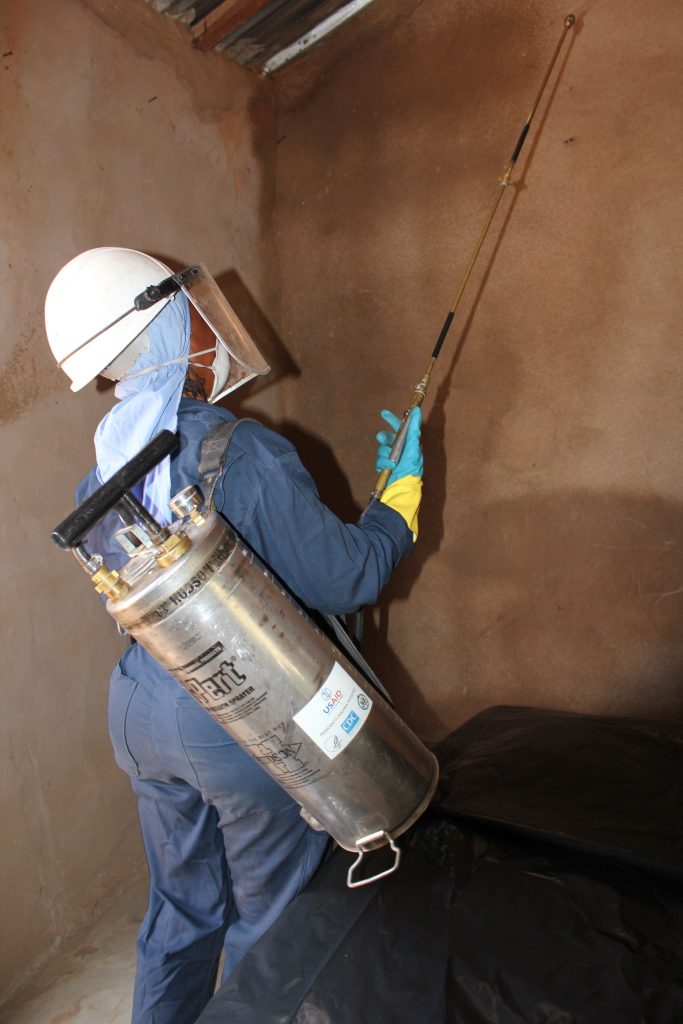In the West African nation of Mali, malaria is the leading cause of morbidity and mortality. In Mali’s Mopti region, 60 percent of the population is affected by malaria. The PMI-supported Africa Indoor Residual Spraying (AIRS) Project conducts indoor residual spraying (IRS) to protect people from the disease, by spraying insecticide on the walls, ceilings, and other indoor resting places of mosquitoes that transmit malaria.
Despite the proven effectiveness of IRS, people in the area were sometimes reluctant to have their homes sprayed due to rumors that wrongly associate illness and death with IRS. More than 3,500 households (approximately 12,000 people) refused IRS protection. To combat these false claims and ensure that people continue to be protected by IRS, the PMI-supported AIRS Project launched a radio campaign on community radio programs.
Through round tables, talk shows and more, the project broadcast the benefits of IRS on 12 radio programs that air in the four districts (Mopti, Bandiagara, Bankass, and Djenne) to be sprayed. Three different radio spots were broadcast three times a day in four languages, Bambara, Fulani, Dogon, and French.
Project staff, municipal officers and community leaders talked on the radio about the deadly disease and how to prevent it through IRS. The radio shows ensured the audiences understood what IRS was, the activities involved in spray campaigns, security measures taken to protect the health of people and the environment, and the kind of insecticide used in IRS.
The project used testimonials from people in areas previously sprayed to attest to the fact that the spraying was safe and effective. The radio shows also included time at the end for listeners to call in and ask questions and to voice their concerns and comments.
As a result of the radio campaign, many of those initially reluctant to participate in the project intervention called into the radio programs to give their phone numbers to project staff so they could make an appointment to have their homes sprayed. By the end of the 2017 spray campaign, the PMI-supported AIRS Project achieved 95 percent coverage (227,646 structures sprayed out of 239,350 found), protecting 823,201 people in the four districts.,

